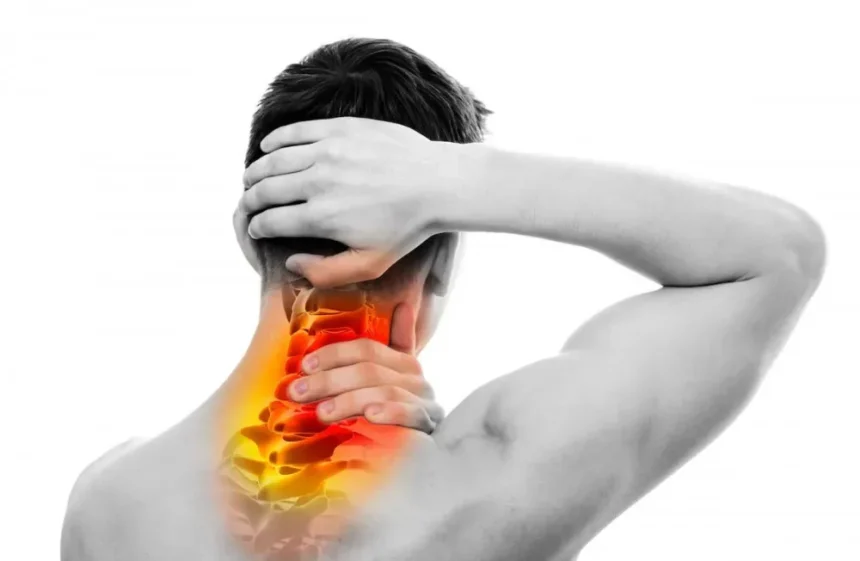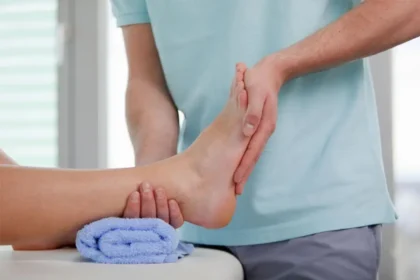Neck pain is a complaint with a wide range of potential causes, including muscle strain and underlying medical conditions. Identifying the source is key for effective treatment and long-term relief. By understanding the frequent contributors to neck pain, patients and providers can collaborate to develop targeted strategies that restore comfort, mobility, and well-being.
Everyday Habits
Many people develop neck discomfort from activities they do every day without thinking about it. Poor posture is one of the top reasons people develop a stiff neck. When you hunch over a computer, look down at your phone for long periods, or sleep in an awkward position, your neck muscles work harder than they should. This extra strain leads to muscle tension and pain.
Muscle strains happen when you move your neck too quickly or hold it in one position for too long. For instance, sleeping with too many pillows or falling asleep on the couch puts your neck in an unnatural position. Your muscles stretch beyond their normal range, which causes pain and stiffness the next day.
Underlying Medical Conditions
Some neck pain comes from medical conditions that affect the bones, discs, or nerves in your spine. Degenerative disc disease occurs when the soft cushions between your vertebrae deteriorate over time. These discs normally act as shock absorbers, but when they break down, the bones in your neck rub together, causing pain.
Arthritis in the neck joints creates stiffness and discomfort, especially in the morning. The smooth cartilage that covers your joints wears away, making movement painful and difficult. This condition becomes more prevalent as people age.
Herniated discs occur when the soft center of a spinal disc pushes through its outer wall. This puts pressure on nearby nerves, creating pain that often spreads from your neck down into your arms and hands. Cervical radiculopathy is the medical term for this nerve compression, which causes tingling, numbness, and weakness along with neck discomfort.
Symptoms To Never Ignore
Most neck discomfort comes from simple muscle problems or minor injuries. Certain symptoms mean you need medical attention right away. Severe neck pain after a car accident or fall often indicates a serious injury like whiplash or a fracture.
If your neck pain is accompanied by fever, headache, and sensitivity to light, these symptoms may indicate an infection. Also, pain in the neck that spreads down both arms or causes weakness in your hands needs prompt evaluation. Pain that worsens over several weeks instead of improving, or neck discomfort that interferes with your sleep and daily activities, should not be ignored. These ongoing symptoms may indicate a condition that needs professional treatment.
When and Where To Get Help
Minor neck pain often goes away on its own within a few days. You can try gentle stretching, applying ice or heat, and taking over-the-counter pain medicine. Rest your neck by avoiding activities that make the pain worse.
You should see a doctor if your neck pain lasts more than a week, worsens instead of improves, or accompanies other concerning symptoms. A healthcare provider will examine your neck, ask about your symptoms, and may order tests like X-rays or MRI scans to find the cause.
Physical therapy helps many people with ongoing neck problems. A physical therapist teaches you exercises to strengthen your neck muscles and improve your posture. For severe cases that do not respond to basic treatments, pain specialists offer advanced options or pain interventions that can help.
Schedule Your Neck Pain Evaluation Today
Understanding the causes of neck pain enables you to make informed decisions about your health. While minor neck discomfort often resolves with simple home care, persistent or severe symptoms need professional evaluation. Contact a trusted pain specialist to schedule your comprehensive evaluation for neck discomfort.









